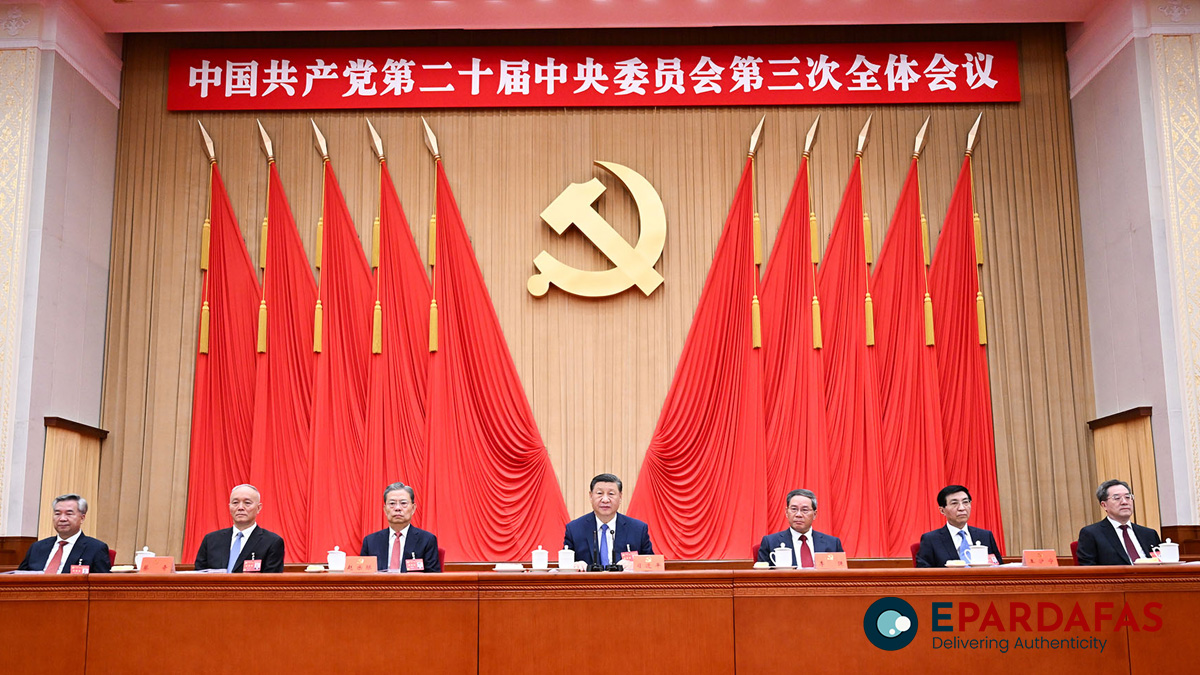
China’s Imminent Retirement Age Hike: A Response to an Aging Population and Economic Pressures
In recent days, major Chinese media outlets have reported that the retirement age in China may soon be raised, with 65 potentially becoming the new retirement age for both men and women. This shift is part of a broader strategy by the ruling Chinese Communist Party (CCP) to address the country’s rapidly aging population and the mounting financial pressures on its social security system.
Policy Change Amid Growing Economic Concerns
The CCP first introduced the concept of raising the retirement age in its five-year reform plan released last month after the Third Plenum, a top-level meeting. The party emphasized that the raise would be “gradual” and would include “voluntary participation with appropriate flexibility.” The change is poised to impact more than 500 million Chinese citizens, who make up the country’s workforce.
Currently, the retirement age in China stands at 60 for men and 50 or 55 for women, depending on their occupation. However, the country’s demographic landscape is rapidly changing. The population aged 60 and above has surged from 126 million in 2000 to 297 million in 2023, effectively doubling their proportion of the total population.
A 2021 projection by the International Monetary Fund (IMF) indicates that China’s population aged 65 and above is expected to reach nearly 400 million by 2049. This demographic shift will place China among the ranks of “rapidly aging” societies. Simultaneously, the working-age population (those aged 15 to 64) has already begun to decline, further exacerbating the strain on the country’s pension system.
A Looming Financial Crisis
China’s declining birthrate, which hit a record low this year, has intensified concerns over the sustainability of the country’s pension funds. With fewer young workers to contribute to the system, Beijing fears that it may soon run out of funds to support the growing number of retirees. A 2019 report by the Chinese Academy of Social Sciences titled “China Pension Actuarial Report 2019-2050” warned that the state pension fund could be depleted by 2035.
The economic fallout from the COVID-19 pandemic has only worsened the situation. With a sluggish economy and rising unemployment rates, contributions to social security funds have decreased, putting further strain on the already burdened system.
Henry Li, an economist at the Institute for Information and Strategic Studies, explained the urgency behind the CCP’s push to raise the retirement age. “The three-year pandemic has basically drained the two funds—pension and health funds. These two are basically gone, so if they [the CCP] don’t postpone it now, many people who should soon receive their pensions will basically find out that they get nothing. I think this is why it was brought up again and needs to be implemented quickly,” Li said.
Implications for the Workforce and Economy
The proposal to raise the retirement age is not without its challenges. China’s job market is already under significant strain. The CCP officially reported a five percent urban unemployment rate in June, with a staggering 13.4 percent among youth aged 16 to 24. However, these figures do not include China’s 447 million rural population. When factoring in both urban and rural populations, as well as part-time work, some estimates suggest that the actual unemployment rate in China could be as high as 50 percent.
Many Chinese companies have downsized or gone bankrupt, leading to widespread layoffs. As a result, only 48 percent of college graduates received job offers this year, according to the Chinese job website Zhaopin.
Sun Kuo-hsiang, a professor of international affairs and business at Nanhua University in Taiwan, noted that delaying retirement will likely exacerbate these employment challenges. “This is why China seems not to dare to raise it [to 65] in one step, which may cause a big impact in the short term. That is, the current unemployment rate will increase significantly. That is why they will raise it from 60 to 65 years old gradually year by year,” Sun said.
Li echoed this concern, warning that raising the retirement age could deepen the economic difficulties faced by many Chinese citizens. “People already see a large number of unemployed people around them. And those who could be receiving their pension next month are suddenly told that it’s postponed for a certain number of years. Not only do they have to go back to work or figure out how to earn some money by doing part-time jobs, but they will definitely not dare to consume but save for their own retirement. This means that China has entered an extremely vicious cycle, so China’s economy will likely keep worsening,” Li explained.
Aging Population and Economic Sustainability
China’s rapidly aging population, declining birthrate, and shrinking labor force pose significant challenges for the country’s social security system. As the burden of pensions and medical expenses continues to grow, the CCP’s decision to raise the retirement age appears increasingly inevitable. However, the move also highlights the broader economic and social issues that China must address to ensure long-term sustainability.
As the country grapples with these challenges, the gradual implementation of the new retirement age policy will be closely watched by both domestic and international observers. The outcome will not only shape the future of China’s workforce but also provide insights into how the world’s second-largest economy manages the complexities of an aging society.













Comments